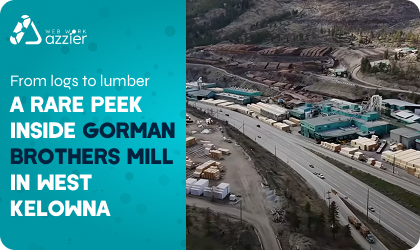How focusing on your maintenance budget can positively impact your organization
The beginning of a new year means different things for different people. Some use it as a time to reboot, others think little of it at all. When it comes to business, however, the beginning of a new year can be a momentous occasion. Businesses will often pair announcements, new strategies, new products, and new tactics to the start of a new year. A common similarity amongst businesses is the new year often means the beginning of a new budget.
A new budget can be exciting, but also challenging. On one hand, you and your team have money to spend to solve your challenges and advance your abilities; on the other, you have to ensure you don’t “spend it all in one place” or spend more than your allotted amount. This balance can be especially difficult when your budget is not made intelligently or with the proper background information.
Any asset intensive organization will know that Maintenance Budgets commonly suffer from this issue. Asset details and cost history are often lacking or unavailable, making it almost impossible for an accurate budget to be created and followed. Guesswork when creating a maintenance budget undermines the credibility and usefulness of the budget and creates frustration for maintenance and finance personnel alike
Challenges of a Maintenance Budget
There are two major challenges that arise when trying to create a maintenance budget
Insufficient Historical Maintenance Data
An accurate maintenance budget cannot be made without data. When maintenance teams are missing key information relating to asset history and reliability, they are forced to guess their future requirements. When the unexpected occurs, maintenance teams will tackle the breakdown at whatever cost in order to get the equipment back online and production up and running. At a minimum, this often results in necessary changes to the budget or at maximum requires the team to go over budget. Furthermore, when there is insufficient or inaccessible data, decisions are rushed and unsupported, the ability to collaborate or negotiate is constrained, and most importantly a lack of data makes it hard to identify and correct the root cause of the issues.
Language Differences between departments
The needs and language of the maintenance team differ significantly from that of the finance team. Where maintenance needs operational and asset-centric data, the finance team needs account-orientated, general ledger-centric information.
On the maintenance side, asset details that support objective budgeting include:
- Equipment Criticality
- Maintenance History
- Failure data
- Work order details and history
- Bill of materials
This information is critical for maintenance teams to create an accurate budget, but none of it is necessary or important to finance teams who require forecasted costs summarized into the corporate chart of accounts. This means maintenance teams are tasked with creating a budget in terms and with details they need and understand and then translating it to meet the requirements of the finance team. When maintenance budgets are not developed at the maintainable asset level, the forecast figures required by the finance team will be purely conjecture and high level. Similarly, when budget adjustments are requested, there is no basis for decisions to be made.
Accurate and Intelligent Maintenance Budgets Matter
The opportunities surrounding maintenance budgets lie in getting better asset and cost data from which to extract meaningful information and making decisions that improve the stability, predictability and consistency of the equipment.
Maintenance is a controllable cost
In asset-intensive industries, maintenance is often seen as a major cost center. Identifying waste, inefficiencies and the cause of unreliability, and finding ways to prevent or control those cost items over time, makes it possible to improve overall execution and gain a competitive advantage. When maintenance budgets are built intelligently, with historical equipment data, it becomes easier to accurately plan maintenance costs and avoid the need to go over budget when break downs do occur.
Maintenance Budgets drive reliability engineering
Maintenance budgeting is a foundational element driving equipment reliability. When managing costs in accordance with a budget, the variances will become evident as the work is executed. Better data and analytics allow organizations to determine where their issues are arising and why. Poor asset performance can be analyzed to determine the root cause of the issue so that better decisions can be made the next time, and good asset performance can be leveraged. When there is visibility into repeat problems, solutions can be found that mitigate and avoid future failures, or deliver repairs at a lower cost.
Maintenance Budgets reflect knowledge and experience
Maintenance budgets are dependent on knowledge and experience. Real-time access to historical asset and cost information simplifies the ability to make risk-based decisions. Budgets formed through guesswork do not support risk-based decisions or reliability engineering. Good data is required in order to weigh the costs and benefits of each approach and how to prioritize the improvements.
Improved Budget Credibility and Negotiation
Accurate Maintenance Budgets make it easier for maintenance teams to justify budgets based on the latest maintenance plans and forecasts. When pushback on a budget item occurs, the ability to drill down to the details will encourage a collaborative, risk-based decision, so that there will be fewer surprises and less finger-pointing when a breakdown occurs.
Your maintenance budget is an important part of your plan for the new year. It should be created with the best data and information available to ensure controlled maintenance costs, drive reliability engineering, reflect knowledge and experience and improve credibility and negotiation. Get your new year started on the right foot with an intelligently built and easily understood maintenance budget.
For more information on Solving your Maintenance Budgeting Challenges, Click Here to read our white paper.






















































